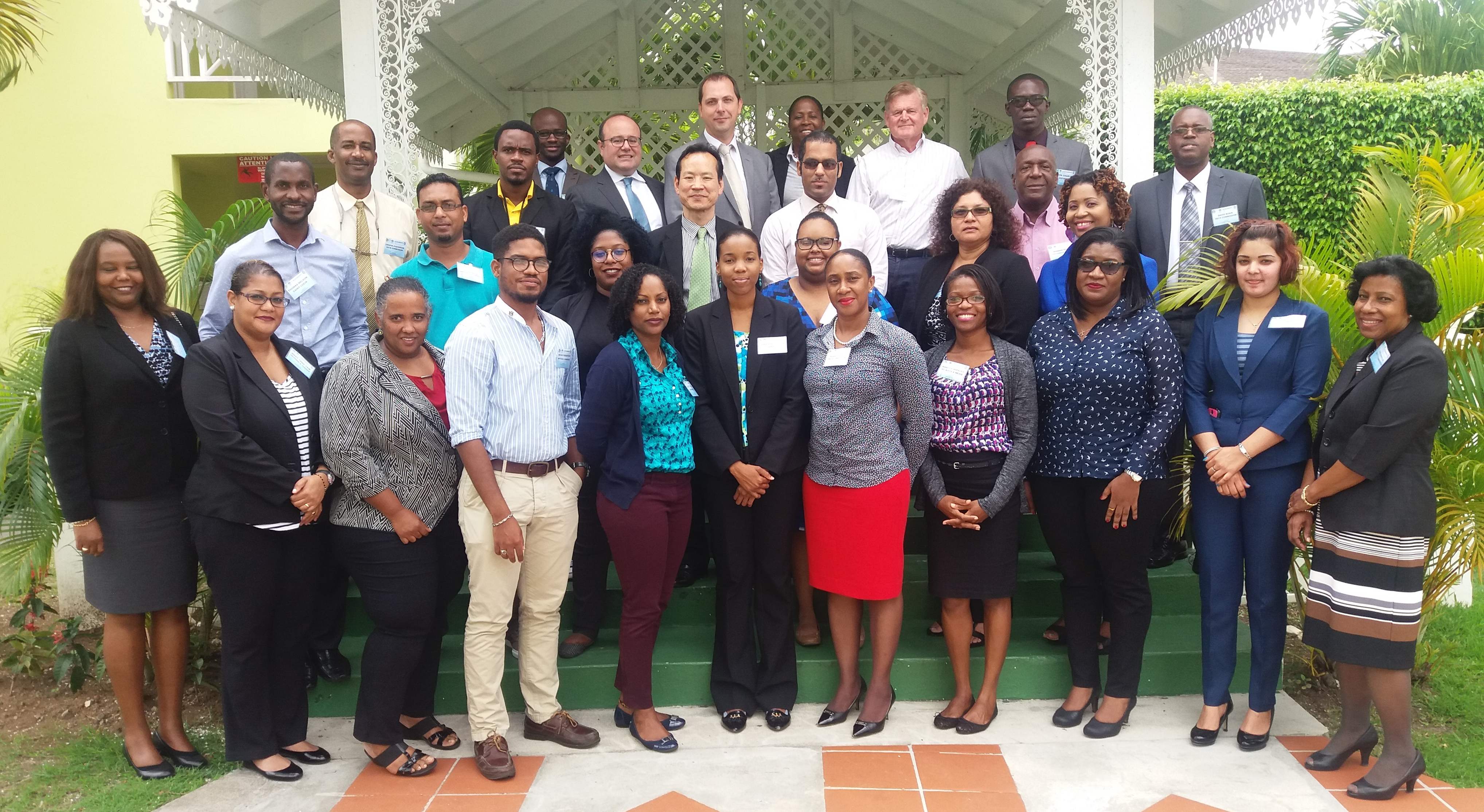OECS Commission Hosts Regional Training Course on Marine Scientific Research
OECS Media Release
Marine scientific research for the sustainable development of the Caribbean is being promoted through a four-day international stakeholder training course, currently being held at the Bay Gardens Hotel, St. Lucia from May 2–5, 2017.
The OECS Commission in collaboration with the Intergovernmental Oceanographic Commission (IOC) and its Sub-Commission for the Caribbean and Adjacent Regions (IOCARIBE), the Division for Ocean Affairs and the Law of the Sea of the UN Office of Legal Affairs (UN-DOALOS ) and the Korea Maritime Institute (KMI) are hosting the regional workshop to “promote and facilitate the conduct of marine scientific research under the United Nations Convention on the law of the Sea (UNCLOS).”
The training course aims to promote Marine Scientific Research (MSR) under the UNCLOS, an area of importance that has been consistently recognised by the United Nations General Assembly in its annual resolutions on oceans and the law of the sea, as well as by the recent 2012 United Nations Conference on Sustainable Development (“Rio+20 Conference”).
More specifically, Sustainable Development Goal 14 (Life Below Water) and the SAMOA Pathway speak to undertaking and promoting MSR to improve ocean health, enhance the contribution of marine biodiversity and to develop the associated technological capacity of Small Island Developing States (SIDS).
SDG14, Target 14c, recognises UNCLOS as the legal framework for the conservation and sustainable use of oceans and their resources as recalled in paragraph 158 of the outcome document of The Future We Want.
Research, and the tools required to conduct it, are therefore essential for the sustainable development of the oceans, the seas and their resources; this includes supporting informed decisions on the conservation and sustainable use of the marine environment and its resources, and by helping to understand, predict and respond to natural disasters and climate change.
Consequently, strengthening the capacity of States, particularly SIDS to implement the relevant MSR provisions of UNCLOS, as well as similar provisions in other instruments, is essential for increasing the MSR being conducted in the world’s oceans.
According to Ms. Alice Hicuburundi, Senior Legal Officer with UN-DOALOS, marine science is important in the eradication of poverty, contributing to food security, helping to conserve marine resources and understanding the impacts of climate change.
Promoting sustainable development of oceans and seas, and promoting knowledge through research, is therefore critical.
Mr. Chamberlain Emmanuel, Head of the Environment Sustainability Cluster at the OECS Commission, informed participants that in addition to improving the Eastern Caribbean Regional Ocean Policy (ECROP), the Heads of Government mandated the OECS Commission to mobilise resources and seek all possible assistance for its implementation and the associated three-year Strategic Action Plan.
Mr. Emmanuel noted that the Commission obtained funding support from the Department of Foreign Affairs, Trade and Development (DFTAD) of the Government of Canada to develop an OECS Marine Research Strategy, a Code of Conduct for Responsible Research and Ocean Data Standards and Best Practices. Together, the documents elaborate the framework in ECROP for ‘promoting cooperation in marine scientific research,’ consistent with the provisions of UNCLOS.
Countries participating in the training course include Antigua and Barbuda, Dominica, St. Kitts and Nevis, Saint Lucia, St. Vincent and the Grenadines, Trinidad and Tobago, Jamaica and the Bahamas. Development partners present include the IOC and its IOCARIBE, KMI and UN-DOALOS.
The OECS Commission specially thanks the United Nations Educational, Scientific and Cultural Organisation (UNESCO) for favourably considering its expression of interest to partner for the delivery of this workshop.




